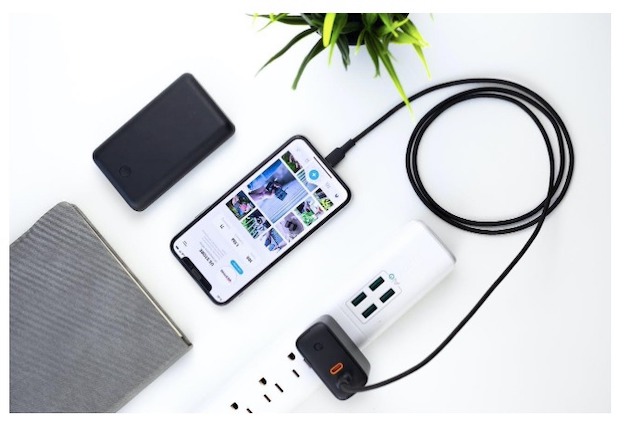We live in a world marked by technology, innovation, and advancements. Hence, there is a rise in the number of gadgets but a sheer lack of power sockets. While it is a great thing to have an electrical outlet next to you to use the devices, you can’t always be fortunate enough. You will need an extension cord to help you use the gadgets when the power outlet is far in such situations. Most people use these cords, but they don’t put much effort into selecting the best one for their homes, leading to accidents.
Are you looking for the best and safest extension cord for the home wiring? Do you wonder how to select the most suitable ones? Read on to find out our tips on choosing extension cords.
How to select an extension cord for your home?
Choosing a suitable extension cord for home wiring can help promote electrical safety and also prevent accidents. The following are five tips you must keep in mind before selecting an extension cord for your home:
1. Carefully consider your usage first:
The first thing to consider is your need or usage. The extension cord ideally falls into three distinct categories based on usage – occasional use, frequent use, and rugged use. After that, you can look for a sequence of letters on the jacket or insulation. These letters signify the designated use for the cord based on the wire used in the cord. If you’re looking for a suitable extension cord, refer to the letters below:
● S – Flexible and suitable for general use.
● W – Ideal for outdoor use.
● J – Comes with standard 300-volt insulation. The absence of J implies that the cord has a thicker 600-volt for heavy use.
● P – Stands for parallel wire construction, suitable for household extension cords or air conditioners.
● T – Vinyl thermoplastic is used in cord jackets.
● E – Cord jacket is made using thermoplastic elastomer rubber (TPE).
● O – Oil resistant cord
2. Buy longer extension cords:
When you decide the length of the extension cord needed in your home, it is always wise to leave extra room. You must buy the next longest cord available to be safe. Getting a longer extension cord makes it convenient and safer and leaves room for any kind of error. If you’re thinking of connecting one extension cord to another or daisy-chain, it can add electrical resistance between the devices and power outlet. It may lead to the building up of additional heat, adding to the risk of melting of cords or even fire. For connecting appliances at home, a 100 ft extension cord will be an ideal choice.
Don’t Miss-
What is an HDMI Cord and What is it Used for?
Blue Key World Cord Management Tips for Home Office
3. Look for three-prong plugs for your extension cords:
You may find both two and three-prong plugs on extension cords, but you must go for the latter one. The right slot is hot, the left one is neutral, and the hole below the two prongs acts as a direct pathway to the ground wire. Having the third prong here offers the power surge a safe outlet to dissipate, decreasing the chances of accidents like shocks or electrical fires. However, you can use the extension cord with three-prongs with only three-prong power outlets. So, you must ensure your house has three-prong power outlets before you buy the three-prong extension cords to increase safety.
4. Opt for a round and thicker cord:
You can go for round and thicker cords if you choose an extension cord for indoor use like in house wiring. A round extension cord tends to have two insulation layers, making it more durable than conventional single layer cords. Aside from the cord’s length, the amount of power carried by it can also depend on its thickness. Similarly, a thicker cord will be to carry more power. If you have to cover a longer distance, a thick cord will help you carry the required amount of power for your devices.
5. Look for GFCI protection:
If you will use the extension cable in the basement or crawl space, outdoors, or any place where it can encounter moisture, the cord must be GFCI type or plugged into a GFCI protected power outlet. GFCI stands for Ground Fault Circuit Interrupter. Some cords have in-built GFCI protection, which helps prevent the chances of shock hazards. Keeping this tip in mind when selecting the extension cord will help you inhibit any accident.
Final thoughts
Extension cords are highly versatile, convenient, and can declutter your house of the mess created by wires. It can help you power all your gadgets or devices without having to worry about finding a power socket nearby. Keep the tips mentioned above in mind to select the best extension cord for your home wiring and use the electronics hassle-free!

